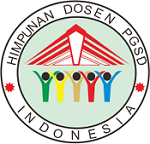HEAD TEACHERS’ MANAGEMENT STRATEGIES AND PARENTAL SUPPORT IN SPECIAL PRIMARY SCHOOLS IN LAGOS STATE, NIGERIA
Abstract
The study investigated management strategies of Head teachers and parental support in special primary schools in Lagos state, Nigeria.The study adopted the descriptive survey research design. The population for the study comprised all the
The study investigated management strategies of Head teachers and parental support in special primary schools in Lagos state, Nigeria.The study adopted the descriptive survey research design. The population for the study comprised all the seven School Heads and teachers in the special schools as well as all Parent Teacher Association (PTA) members in the schools. A sample of 31 respondents was used, 21 respondents were selected using the cluster sampling technique while 10 PTA members were sampled using the convenient sampling technique. The instruments used in the study for collecting data were a self-designed questionnaire titled “Influence of Management Strategies on Parental Support Questionnaire” (IMSPSQ) and an interview guide titled ‘Influence of Management Strategies on Parental Support Interview Guide’ (IMSPSIG).The validity and reliability of the instruments were ensured before use. Percentage and frequency counts were used to analyse the data collected. The result showed among others that providing parental support skill acquisition programmes, effective communication with parents, providing opportunities for parents to suggest ideas, involving different stakeholders and adoption of decentralized decision making approach were the various management strategies adopted in special primary schools in Lagos state. The result also showed that the level of influence of management strategies on parental support in special primary schools in Lagos State was moderate. The study recommended that government and other concerned organizations and bodies should sensitize schools and organize training programmes, seminars or conferences for Head Teachers and classroom teachers in primary schools on the importance of involving parents in school management.
Key words: Management, Strategies, Parental Support, Special, Primary-Schools
Full Text:
PDF 1 - 12References
Abdullahi, S. U. (1996). Parent teacher association as an instrument of community participation in education. Retrieved from http://www. zedang.org/agmlectures/4th.pdf on 31/03/2010.
Adebile, R. F. (2009). The role of Nigerian teachers and parents: A pre-requisite for efficient and dynamic curriculum development. African Research Review, 3(1):362-372.
Amanchukwu, R. N. (2011). The role of parents in the effective management of primary education in Rivers State. African Journal of Social Sciences, 1(3):142-148.
Apebende, E. U., Akpo, O. B., Idaka, I., &Ifere, A. B. E. (2010). Parental involvement and effective nation’s implementation of the universal basic education (UBE). African
Research Review, 4(2):311-321.
Ayeni, A. J., & Williams, O. I. (2013). A conceptual model for school-based management operation and quality assurance in Nigerian secondary schools. Journal of Education and Learning, 2(2), 36-43.
Burns, J. M. (1978). Leadership. New York: Harper & Row
Dodge, K. A. (2002). Meditation, moderatmion and mechanisms in how parenting affects children’s aggressive behaviour. In J. G. Borkowski, S. L. Ramey, & M. Bristol- power (Eds.), Parenting and the child’s world: Influences on academic, intellectual and social development(pp 215-229). Mahwah, N.J: Erlbaum.
Epstein, J. L. (2001). School, family, and community partnerships: Preparing educators and improving schools. Boulder, Co: Westview. press.
Epstein, J. L., Sanders, M. G., Simon, B. S., Salinas, K. C., Jansorn, N. R., & Van Voorhis,
F. L. (2002). School, community, and community partnerships: Your handbook for action(2nd ed.). Thousand Oaks, CA: Corwin Press.
Epstein, J. L. (2005). School-initiated family and community partnerships. In T. Erb (Ed.), This we believe in action: Implementing successful middle level schools (pp. 77–96). Westerville, OH: National Middle School Association.
Federal Republic of Nigeria (2014). National Policy on Education. Lagos: NERDC Press.
Fullon, M., & Watson, N. (2013). School-based management: Reconceptualizing to improve learning outcomes. New York: World Bank.
Gonzalez-DeHass, R., &Willems, P. P. (2003). Examining the underutilization of parent involvement in the schools. The School Community Journal, 13(1):85-99.
Hung, C. L. (2007). Family, schools and Taiwanese children’s outcomes. Educational
Research, 49(2):115-125.
Iwu, C. G., &Iwu, I. C. (2013). Factors inhibiting effective management of primary schools in Nigeria: The case of Ebonyi State. Journal of Social Science, 35(1):51-60.
Knowledge Management Terms (2009). Retrieved November 2, 2009, from Stuhlman Management Consultants. http://home.earthlink.net/ddstuhlman/defin1.htm.
Mediratta, Kavitha, and Fruchter, Norm (2001). Mapping the field of organizing for school improvement: Areport on education organizing in Baltimore, Chicago, Los Angeles, the
Mississippi Delta, New York City,Philadelphia, San Francisco, and Washington, DC.
NPE, (2004), National Policy on Education, Revised Edition
Ogundele, M. O., Oparinde, F. O. & Oyewale, M. K. (2012). Community-school relations and principal’s administrative effectiveness of secondary schools in Kwara State. Journal of Educational and Social Research, 2(3), 271- 274.
Olaitan, O. L., Oniyangi, S. O., Oyerinde, O. O., &Onifade, O. A. (2012). Availability and utilizaation of Instructional materials for teaching health education in primary schools in Kwara State, Nigeria.International Scientific Research Journal, 4(2):89.
Oniyangi, S. A. (2008). Strategies for promoting school and community relationship for better productivity. In D.O. Durosaro, R. A. Shehu and K. Mohammed (eds.), Classroom management techniques for the newlyrecruited primary school teachers in Kwara State. (pp. 99-110). A publication of Kwara State Universal Basic Education Board, Ilorin.
Owuamanam, D. O. (1991). Foundations of sociology and psychology of education. Lagos:
AbimasLithografiksCompany.
Osakwe, R. N. (2010).“Education for people with special needs in Nigeria: Challenges And way forward” in M. I. Atinmo, J. B. Babalola, O. A. Moronkola& A. I.
Atanda.Ozigi, A.
Pansiri, N. O., &Bulawa P. (2013). Parents’ participation in public primary schools in
Botswana: Perceptions and experiences of head teachers. International Education
Studies, 6(5):68-77.
Zill, N., & Nord, C. W. (1994). Running in place: How American families are faring in a
changing economy and an individualistic society. Washington, DC: Child Trends.
DOI: https://doi.org/10.25134/ijete.v2i1.3962
Refbacks
- There are currently no refbacks.
Copyright (c) 2021 Indonesian Journal of Elementary Teachers Education

This work is licensed under a Creative Commons Attribution-ShareAlike 4.0 International License.





